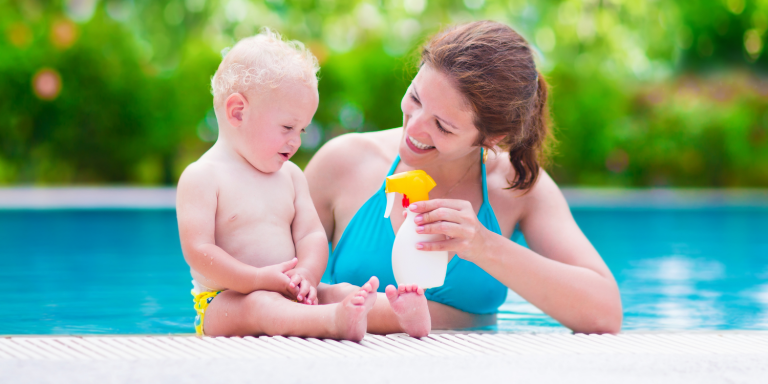Sunscreens that offer protection against both UVA and UVB radiation can advertise “Broad Spectrum and SPF 15” (or higher) on their labels.
Sunburn is caused primarily by UVB radiation. Both UVA and UVB radiation can cause premature aging, sunburn, and skin cancer.
In contrast, any sunscreen that does not carry the “Broad Spectrum” label or that has a “Broad Spectrum” label with an SPF value from 2 to 14 will also come with this warning: “Skin Cancer/Skin Aging Alert: Spending time in the sun increases your risk of skin cancer and early skin aging. This product has been shown only to help prevent sunburn, not skin cancer or early skin aging.”
Any product with a water-resistant claim must include the duration of expected effectiveness—either 40 or 80 minutes.
Manufacturers can no longer claim that their product is “waterproof” or “sweatproof” or that it’s a “sunblock.”
FDA is also considering a regulation that calls for all sunscreens with an SPF value of 50 or higher to be labeled simply as “SPF 50+,” since there’s not enough evidence indicating that SPFs over 50 have any additional protection.
Natural sunscreen ingredients
Look for sunscreens that contain beeswax, plant oils, and plant butters. These natural ingredients offer the extra benefits of moisturizing your skin and providing antioxidants.
Look for lotion or cream-based sunscreens with a natural mineral base like zinc oxide, which provides UVA protection by deflecting the sun’s rays.
Avoid the ingredient oxybenzone, which may interfere with hormones. And use caution if you purchase sprayable sunscreen. Spray it onto your hands first, never directly onto the face.

